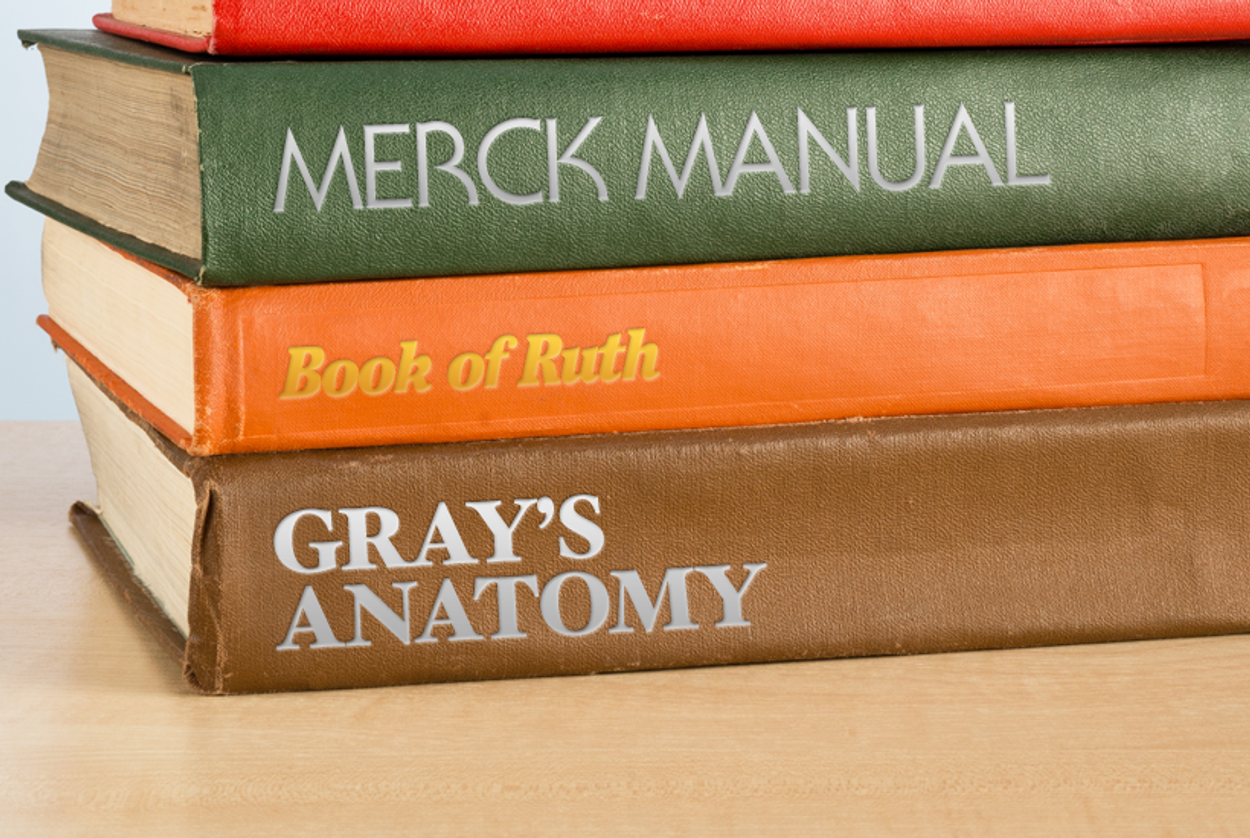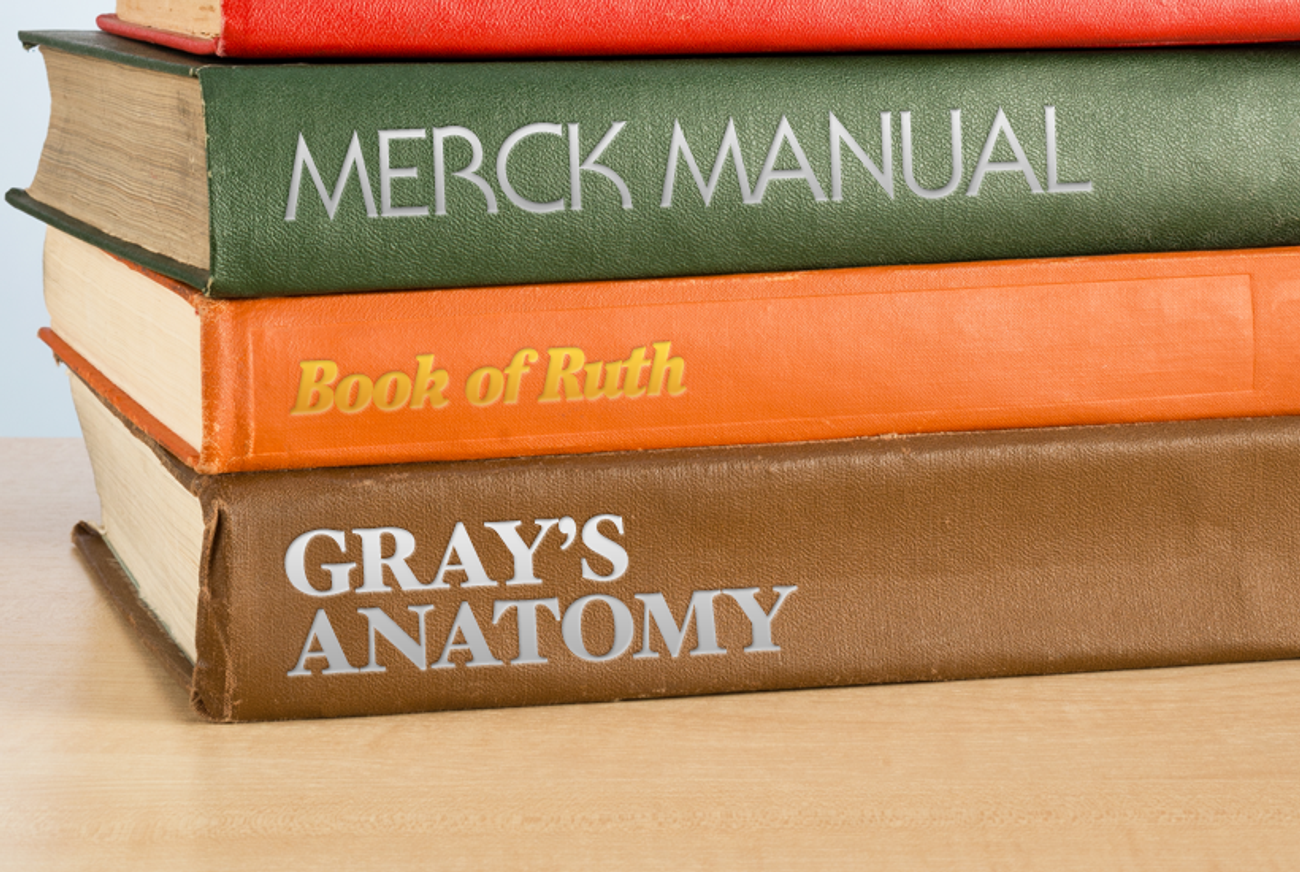On Shavuot, the Book of Ruth Offers Doctors a Prescription for Compassion
Medical professionals could learn a lot from the biblical character, whose kindness initiated a chain of merciful acts




This week, Jews will observe Shavuot. The holiday bears many names: It is called the Holiday of Weeks (reflecting the 49-day interval that has elapsed since Passover), the Holiday of Torah-Giving (commemorating the seminal event at Sinai), and the Festival of the First Fruits (recalling the harvest and subsequent sacrifices that were once made at the Temple in Jerusalem). Regardless of what you call it, though, Shavuot includes one ritual that has endured throughout the centuries: the reading of the Book of Ruth during synagogue services.
Within its four concise chapters, the Book of Ruth condenses a number of themes. In one, Ruth represents the prototypical convert; many women today who leave another faith for Judaism adopt her name. Also, Ruth’s lineage demonstrates that the concept of a “Chosen People” is not intended as racist: Judaism teaches that, although Ruth began life as a Moabite, the messiah will descend from her. Finally, Ruth’s relationship with her mother-in-law, Naomi, offers a model for platonic friendship.
Beyond those important concepts, one thread unites the diverse principles so densely shoehorned into the lovely, short story of Ruth: compassion. Lessons in compassion can be valuable for all of us, but Ruth’s message may have particular worth for practitioners in the field of medicine, where I work.
Losing their husbands almost simultaneously, Ruth and Naomi find themselves alone amid alien surroundings. Overcoming self-pity in favor of empathy, Ruth famously asserts, “Whither thou goest I will go and where thou lodgest I will lodge, thy people shall be my people and thy God my God.” Overwhelmed, Naomi immediately reciprocates, offering wise counsel and orchestrating an encounter between Ruth and their benevolent relative Boaz. Drawn to Ruth’s goodness, Boaz courts her and provides sustenance during hardship. The book concludes with the news that Ruth and Boaz marry and produce a child, Obed, who begets Jesse, father of King David, progenitor of the messiah.
As Rabbi Shraga Solomon has pointed out, the epilogue seems less about genealogy than about Ruth’s original compassion, which initiates a chain of merciful acts. In contemporary parlance, a continued account of “paying it forward” grows from Ruth’s original investment of empathy. In Ruth’s orbit, compassion begets compassion. This phenomenon isn’t unique to Ruth; in fact, it’s something we can all learn: In the journal PLoS One, Cornell University sociologists Milena Tsvetkova and Michael Macy recently published results of their experiment showing that receiving or even observing generosity significantly increases likelihood of in turn being generous toward a stranger. The authors conclude that the experiencing of kind acts tends to play an important role in setting off cascades of compassion.
Compassion is integral to Ruth’s story—and, it turns out, it’s right there in her name. Author of The Mother Tongue, Bill Bryson, cynically laments the depletion of our modern linguistic capabilities. He argues that the English language would benefit from restoration of the positive forms of several negative words, for instance “disheveled” and “inept.” It wouldn’t do, he adds, to compliment a tidy person by saying, “She’s so sheveled,” or to praise a capable individual for being “full of ept.” In his book, Bryson notes that the adjective “ruthless” was once linked to the common noun “ruth.” For years, Webster’s dictionary has defined “ruth” as referring to compassion for the misery of another. I don’t believe the connection to Ruth’s name is coincidental.
The medical profession—beset by too many technocratic physicians steeped in dazzling science—has been scrambling lately to restore its compassion, its capacity to cope with patient anguish. Medicine wrestles to comfort those in pain and devises intricate strategies to strike sacred connections with human beings who are ill. There is no room for callousness in the business of healing.
As an antidote to insensitivity, most medical schools in the Western world now boast curricula that include courses in humanities along with training in standard subjects of anatomy, physiology, and biochemistry. Today’s theorists in medical education propose that, by studying humanistic subject matter, physicians will deepen their listening skills and become mindful of others’ needs. The underlying logic says that immersion in drama, literature, and writing—all containing emotional accounts of illness—will expand students’ capacities to engage with their patients.
Inserting compassion into the patient-doctor relationship is not just a nice touch or a polite gesture. Sound data demonstrate that a warm, empathetic approach improves clinical outcomes, bolsters immune systems, increases patient satisfaction, and even augments professional gratification among physicians. And there’s more.
According to a thought-provoking article published last year by University of Wisconsin investigators, guided Internet-based audio instruction (only 30 minutes per day for two weeks) cultivated feelings of compassion for a range of targets—including self, loved ones, strangers, as well as the “difficult person.” In follow-up studies using functional magnetic resonance imaging (fMRI), the same researchers saw spikes in altruism and activation of neural pathways that govern helping behavior. Those exciting findings show that we can alter the inherent wiring that mediates our responses to suffering. Equally encouraging, physicians can learn or (more likely) re-learn skills of empathy that may have been eroded by their competitive pre-medical training or burned out amid the fatigue of internship.
Courses listed in medical-school catalogs often require eclectic reading lists that range typically from the sophisticated (Buber’s I and Thou, for example) to the simple (including Silverstein’s The Giving Tree). Such modern books are, of course, worthy fare, but educators, their students, and eventually their patients might benefit also from an ancient text-based remedy. When Ruth reaches out to Naomi, we can easily envision her uttering, “I care about you; despite our divergent backgrounds, there is a shared humanity between us.” Might we marshal similar sincerity when we, ourselves, encounter people who need consoling?
Even busy medical professionals, and for that matter busy people, would do well to infuse relationships with a little “ruthiness,” as Steven Colbert might say, by reading the Book of Ruth and applying its timeless precepts. Perhaps along with its other names, the holiday of Shavuot, might come to be known as the Celebration of Compassion.
Benjamin W. Corn is professor and chairman of the Institute of Radiotherapy at Tel Aviv Medical Center and a co-founder of the NGO Life’s Door.